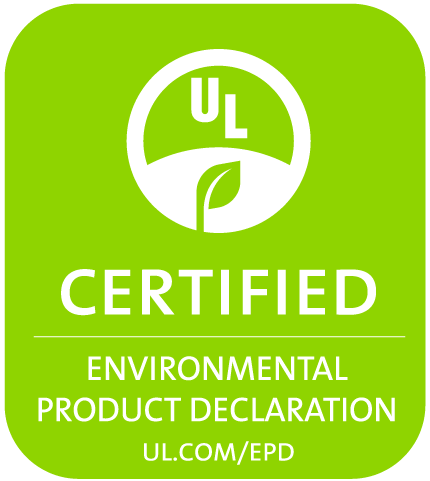 Now distributors and warehouses, and any company that purchases wood pallets can quantify the ecological value of using wooden pallets.
Now distributors and warehouses, and any company that purchases wood pallets can quantify the ecological value of using wooden pallets.
In July 2020, the National Wooden Pallet & Container Association (NWPCA) and the Pallet Foundation released the Environmental Product Declaration for wood pallets in the US. An Environmental Product Declaration, or EPD, gives consumers and industry professionals a thorough and product-specific set of environmental impact data, assessed and validated by an independent third-party organization. The declaration quantifies the impact wooden pallets have on the environment beyond their reusable, recyclable and biodegradable qualities. Wooden pallets have a potential net carbon positive impact when factoring in their complete life cycle. Carbon offsets may be achieved when at the end of a wood pallets useful life cycle, unusable wood pallets are used for fuel instead of natural gas.
Why Do Purchasers Look for EPD Certification?
The Environmental Product Declaration (EPD) certification provides a standardized way to quantify the environmental impact of a product. The evaluation includes analyzing raw materials, energy consumption during the product’s production, use and disposal. Buyers and specifiers rely on EPD certification to quantify a product’s sustainable qualities and environmental repercussions.
The EPD for wood pallets was produced in cooperation with Forest Products Lab (part of the US Forest Service that specializes in research) and was certified by UL (Underwriters Laboratories), a global leader in third-party EPD certification. With the high level of transparency and third-party participation that helped to create this EPD, consumers may rely on it for an accurate and comprehensive assessment of the environmental effects of wood pallet use.
What are the Environmental Effects of EPD Certified Wood Pallets?
The EPD covers environmental data across the entire life cycle of wooden pallets, starting from the harvesting of materials for their manufacture. Forests in the US are now sustainably managed and much healthier than they were in the recent past. Forests cover one-third of the country, spanning 766 million acres, and they contain 20 percent more trees than they did nearly 50 years ago. The US Forest Service reports that 1 billion trees are planted in the US every year. The lumber used to construct pallets in the US is grown domestically and harvested sustainably, a truly renewable material.
A major concern for environmentally-conscious purchasers is the carbon footprint of the products they use. The European Confederation of Woodworking Industries has argued that every cubic meter of wood used instead of other building materials reduces carbon emissions into the atmosphere by 1.1 tons of CO2 on average. In addition, Pennsylvania State University conducted an independent study which demonstrated that wood pallets have a significantly lower carbon footprint as compared to plastic pallets over the course of the lifetime of the pallets, with consideration to factors such as global warming/climate change, ozone depletion, non-renewable energy, and others.
The lower carbon footprint of wood pallets is due in part to their ability to be repaired, refurbished, and reassembled to get a longer useful life out of the same materials, and partly due to the way pallets are recycled at the end of their useful life. A study by Virginia Tech and the USDA Forest Service, released in 2018, estimated that while 508 million new wood pallets were manufactured that year, only 25 million pallets ended up in landfills, resulting in a recycling rate of approximately 95 percent. Pallets that reach the end of their life cycle in the supply chain are turned into other usable materials, from wood chips, mulch, and animal bedding to wood fuel. Because of certain chemical properties of wood, replacing natural gas with wood fuel from pallet waste can result in carbon offsets, as less CO2 is released into the atmosphere. According to the same Virginia Tech and USDA Forest Service study, alternative packaging materials such as plastic are recycled at a rate of a little more than 10 percent.
The EPD released in 2020 is truly comprehensive, including both block and stringer pallets of all common sizes, manufactured by companies across the United States. Its scope spanned the entire life cycle of a wooden pallet, “cradle-to-grave,” from the raw materials that go into the manufacture of pallets all the way to a pallet’s end-of-life stages when its components are either rendered into another product or treated to waste disposal. With this extensive, detailed, and independently-verified report available for pallet and packaging consumers to review for themselves, it is even more clear than ever that wood pallets are a sustainable and environmentally-responsible choice for the shipping and transportation of practically all types of goods.
This EPD followed shortly on the tail of the development and release of a PCR (Product Category Rules), which are used to standardize how environmental impacts are determined. UL praised the pallet industry for its initiative and leadership in producing first a PCR and then an EPD, demonstrating strong environmental stewardship and a desire to better understand their own environmental impact. With the release of this EPD, pallet purchasers can be more confident that the sustainability of wood packaging has been scientifically verified and independently certified.
Greenway Products & Services, LLC is the largest pallet re-manufacturer and recyclers in NY, NJ, PA, MD, and DE. Greenway sells EPD certified wooden pallets. The company is a highly-rated, full-service pallet management company. Contact us for a quote today at sales@greenwaypsllc.com. Visit our website, greenwaypsllc.com or call us at 732-442-0200. We can deliver trailers to you on a moment’s notice throughout the NY-NJ-PA-MD-DE Mid-Atlantic area.



Leave A Comment